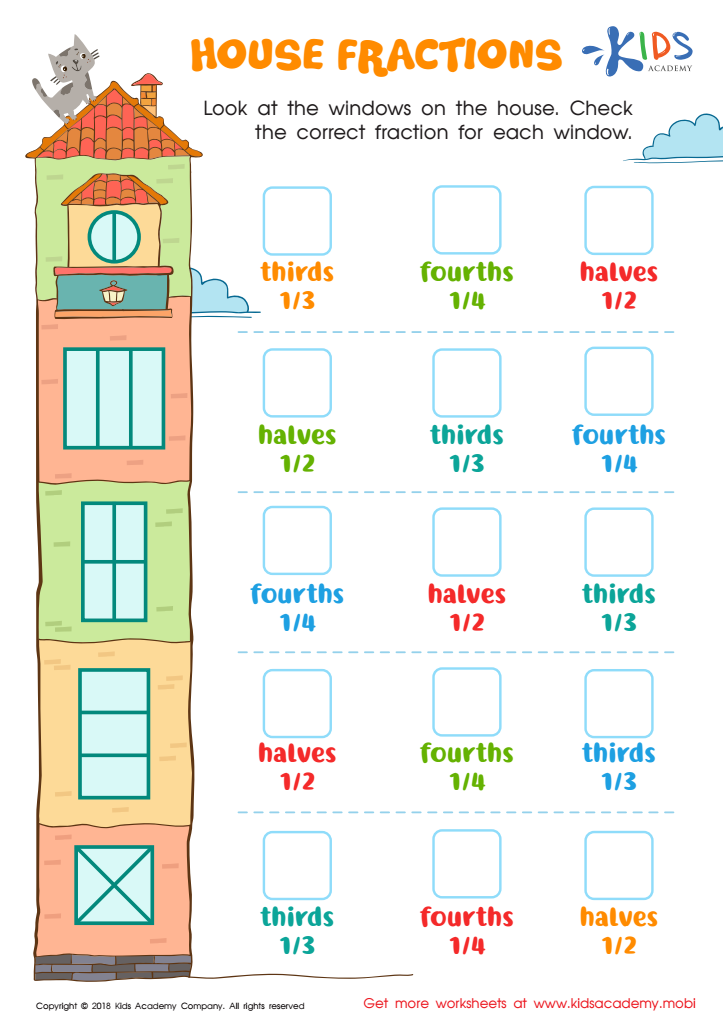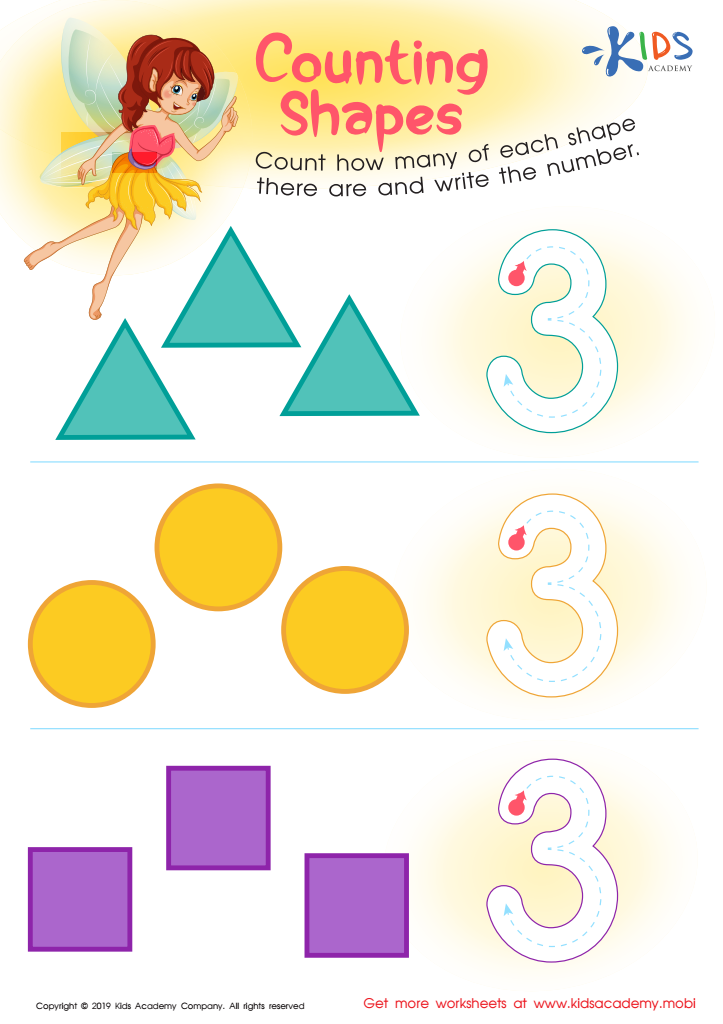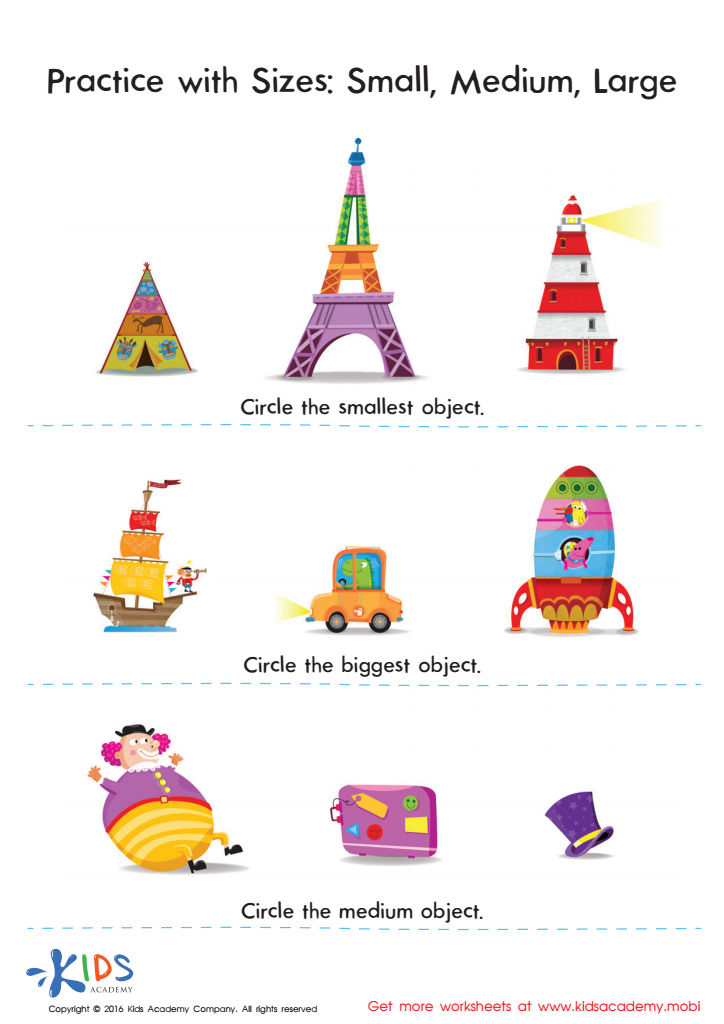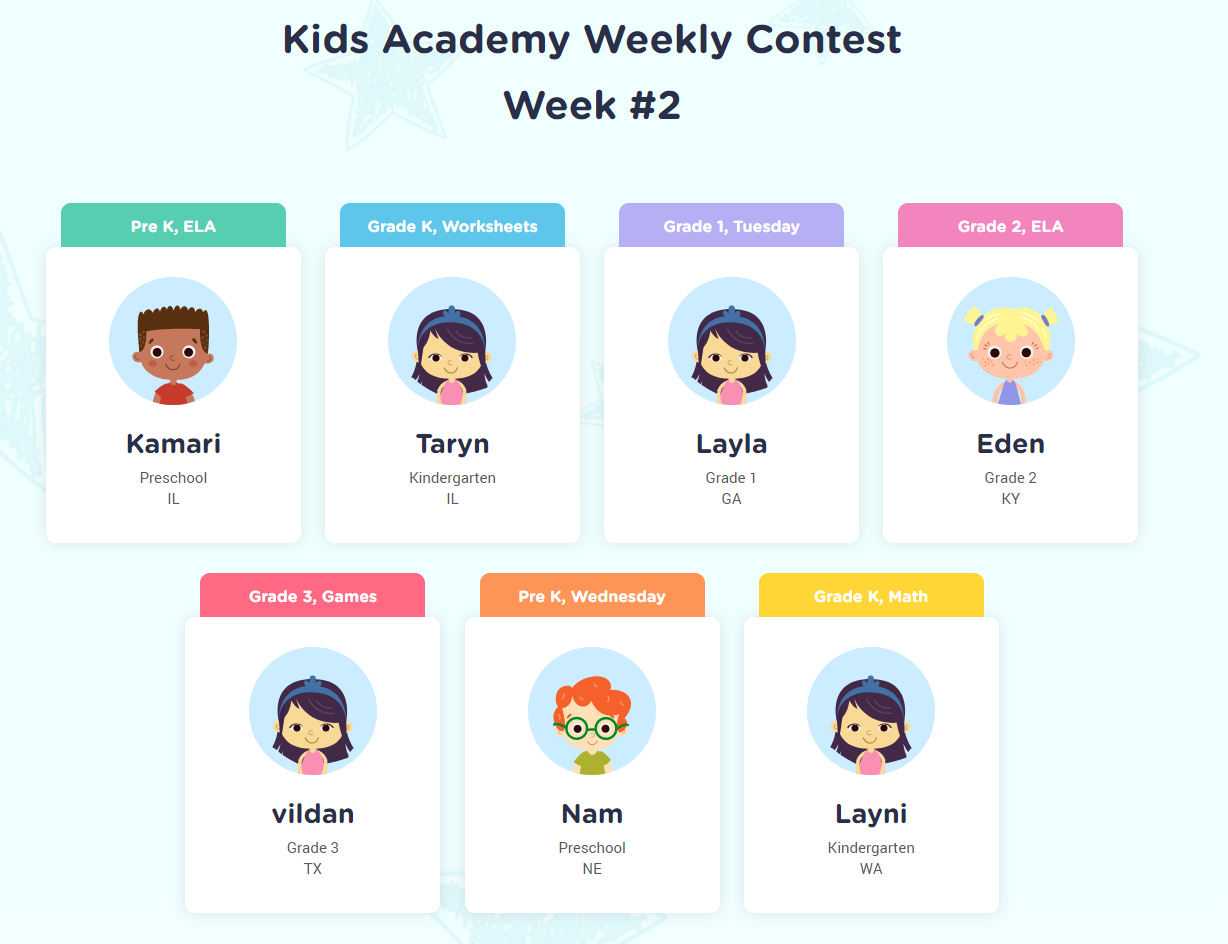Visual perception development Math Worksheets for Ages 6-7
4 filtered results
-
From - To
Enhance your child's learning experience with our engaging Visual Perception Development Math Worksheets designed for ages 6-7. These worksheets focus on strengthening essential visual perception skills necessary for math success, including shape recognition, spatial awareness, and visual discrimination. Our fun and interactive activities keep children motivated while developing critical thinking and problem-solving abilities. Perfect for home or classroom use, these resources align with early learning standards to foster foundational math skills. With vibrant illustrations and age-appropriate challenges, your child will enjoy honing their abilities while gaining confidence in their math skills. Explore our collection to support visual perception development today!


House Fractions Worksheet


Counting Shapes Worksheet
Visual perception development is crucial for children ages 6-7, especially in math education. At this age, children transition from concrete manipulation of objects to more abstract mathematical concepts. Strong visual perception skills aid in recognizing shapes, patterns, and spatial relationships, which are foundational for understanding mathematical ideas such as geometry, measurements, and data analysis.
When children can effectively visualize and interpret visual information, they become better problem solvers and critical thinkers. For instance, being able to arrange and categorize objects visually helps them understand classification and sorting, which are vital for early algebraic thinking. Moreover, visual perception supports measurement skills, helping students comprehend concepts like length and area in practical scenarios.
Teachers and parents play a pivotal role in fostering these skills through engaging activities, like sorting blocks, playing with puzzles, or drawing geometric shapes. If visual perception is not adequately nurtured, children may struggle with math concepts, leading to long-term academic difficulties. By prioritizing visual perception development, parents and educators can build a strong foundation for children's future success in math and bolster their overall cognitive development, thus positively influencing their overall academic journey.
 Assign to My Students
Assign to My Students


















